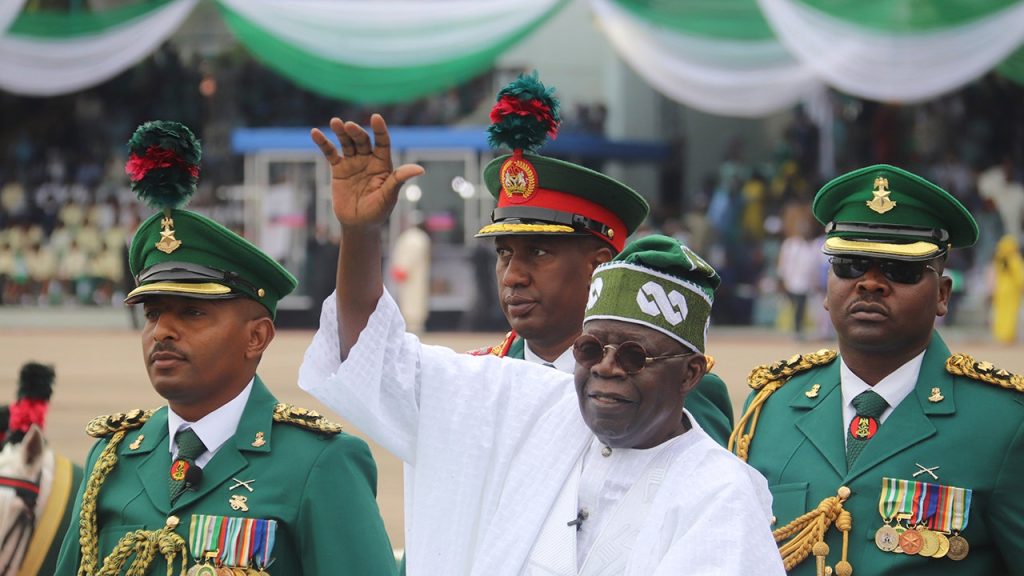Nigeria made headlines when lawmakers passed a new law changing its national anthem, replacing the version in use since 1978 with one from 1960 that had been dropped by the military. The bill was speedily passed by both chambers of the National Assembly, which is controlled by the ruling party, in less than a week, raising concerns about the lack of public input in the decision-making process. The new anthem, “Nigeria We Hail Thee,” composed by British expatriate Lillian Jean Williams, was played publicly for the first time at a legislative session attended by President Bola Tinubu, who marked his one year in office on the same day.
The old anthem, “Arise, O Compatriots,” was introduced during a period of civil strife and urged Nigerians to serve their country with love and strength while honoring the sacrifices of past heroes. The decision to change the anthem sparked mixed reactions on social media, with some Nigerians expressing their refusal to sing the new anthem, citing concerns about the colonial language used in the lyrics. Former education minister and presidential aspirant Oby Ezekwesili criticized the move, arguing that it reflected a lack of consideration for public opinion on the matter.
Supporters of the new anthem defended the decision, emphasizing the importance of adopting an anthem introduced before the era of military rule. Public affairs analyst Frank Tietie highlighted the ideological significance of anthems, suggesting that the military’s alteration of the anthem was a regrettable development. The swift passage of the bill and the lack of extensive public consultation raised questions about the transparency and inclusivity of the decision-making process, particularly given the anthem’s symbolic importance as a national symbol.
The adoption of a new national anthem reflects broader debates in Nigeria about historical memory, national identity, and the legacy of colonialism. The decision to replace the existing anthem with one dropped by the military reveals a tension between past and present, highlighting competing visions of the country’s history and values. While some see the move as a positive step towards reclaiming a pre-colonial identity, others view it as a regressive move that ignores the complex realities of Nigeria’s colonial past and post-independence struggles.
The controversy surrounding the new national anthem underscores the challenges of nation-building in a diverse and complex society like Nigeria. The anthem serves as a powerful symbol of unity and identity, reflecting the aspirations and values of a nation. The decision to change the anthem has reignited debates about the country’s past, present, and future, raising important questions about the role of national symbols in shaping collective memory and fostering a sense of belonging. As Nigeria navigates these debates, it faces the task of reconciling its diverse heritage with the need for a shared vision of the future that resonates with all its citizens.
In conclusion, the adoption of a new national anthem in Nigeria has sparked a contentious debate about history, politics, and national identity. The decision to replace the existing anthem with one from the pre-military era reflects broader tensions surrounding historical memory and the legacy of colonialism. The swift passage of the bill and the lack of public consultation have raised concerns about transparency and inclusivity in the decision-making process. As Nigeria grapples with these challenges, it must navigate complex issues of unity, diversity, and belonging to forge a shared vision of the future that resonates with all its citizens.


